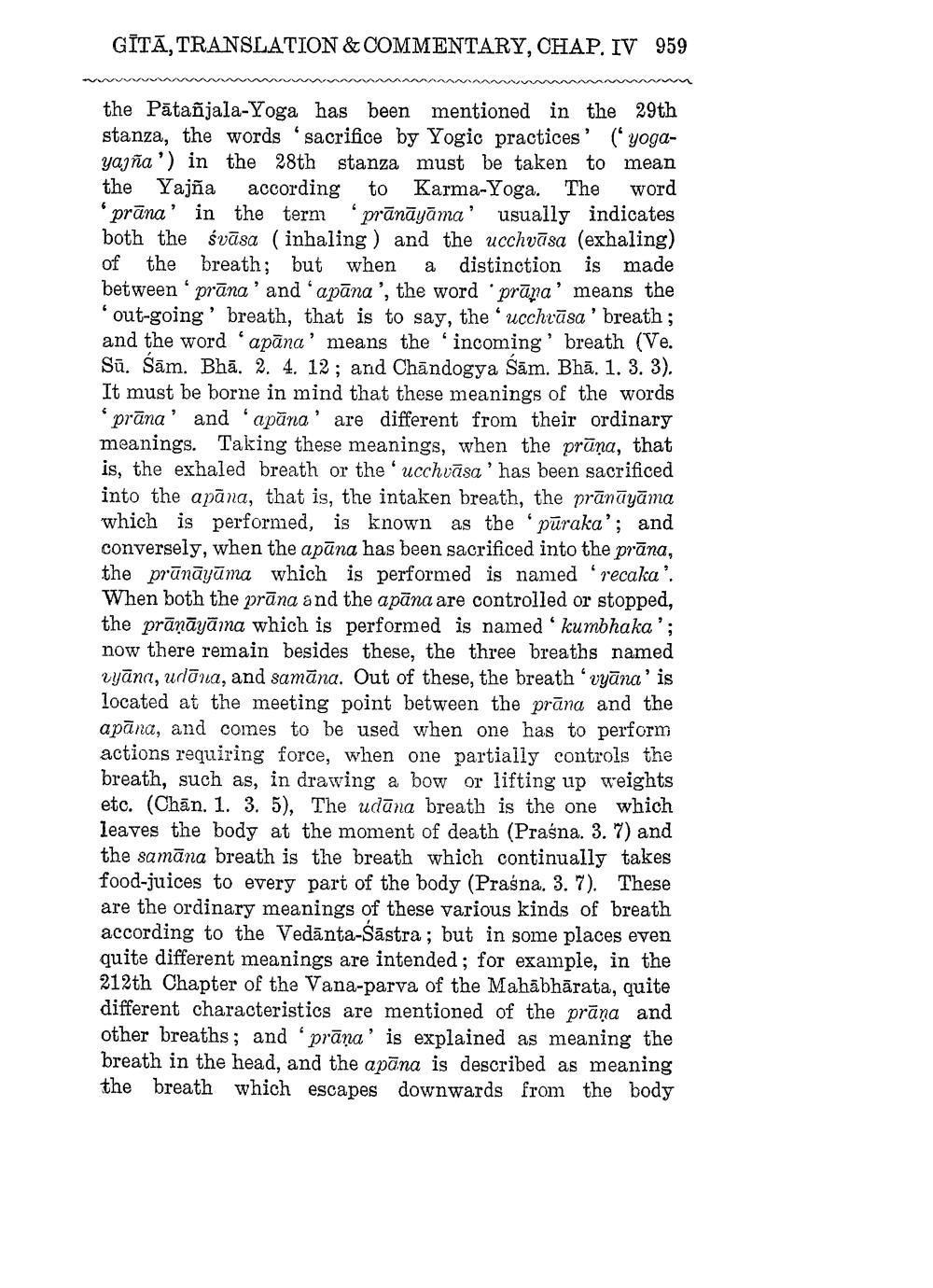________________
GĪTĀ, TRANSLATION & COMMENTARY, CHAP. IV 959
the Pātañjala-Yoga has been mentioned in the 29th stanza, the words 'sacrifice by Yogic practices' ("yogayajña') in the 28th stanza must be taken to mean the Yajña according to Karma-Yoga. The word
prāna' in the term 'prānāyāma' usually indicates both the śvāsa (inhaling) and the ucchvāsa (exbaling) of the breath; but when a distinction is made between 'prāna' and 'apāna', the word 'prūna' means the
out-going' breath, that is to say, the 'ucchrāsa' breath; and the word 'apāna' means the incoming' breath (Ve. Sū. Šām. Bhā. 2. 4. 12; and Chāndogya Sām. Bhā. 1. 3. 3). It must be borne in mind that these meanings of the words
prāna' and 'apāna' are different from their ordinary meanings. Taking these meanings, when the prūņa, that is, the exhaled breath or the 'ucchrāsa' has been sacrificed into the apāna, that is, the intaken breath, the prānāyāma which is performed, is known as the 'pūraka'; and conversely, when the apāna has been sacrificed into the prāna, the prūnāyāma which is performed is named 'recaka'. When both the prāna and the apāna are controlled or stopped, the prānāyāma which is performed is named 'kumbhaka'; now there remain besides these, the three breaths named vyāna, udāna, and samāna. Out of these, the breath 'vyāna' is located at the meeting point between the prāna and the apāna, and comes to be used when one has to perform actions requiring force, when one partially controls the breath, such as, in drawing a bow or lifting up weights etc. (Chān. 1. 3. 5), The udāna breath is the one which leaves the body at the moment of death (Praśna. 3. 7) and the samāna breath is the breath which continually takes food-juices to every part of the body (Praśna. 3. 7). These are the ordinary meanings of these various kinds of breath according to the Vedānta-Šāstra ; but in some places even quite different meanings are intended; for example, in the 212th Chapter of the Vana-parva of the Mahābhārata, quite different characteristics are mentioned of the prāna and other breaths; and 'prāna' is explained as meaning the breath in the head, and the apāna is described as meaning the breath which escapes downwards from the body




